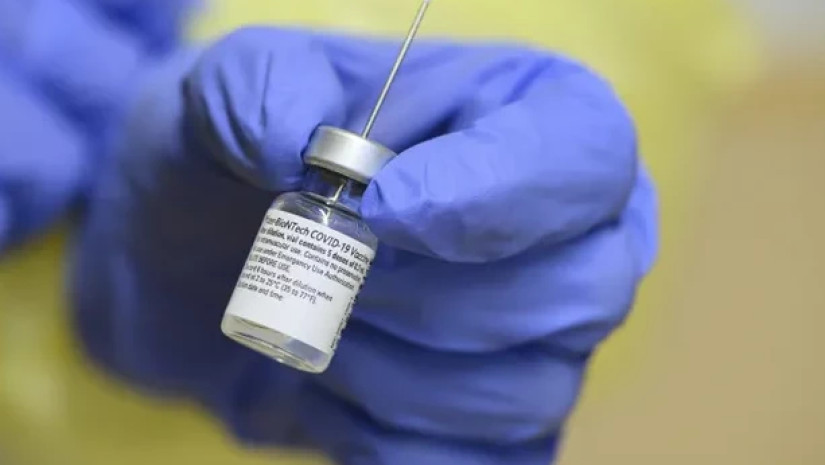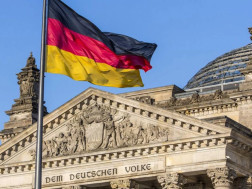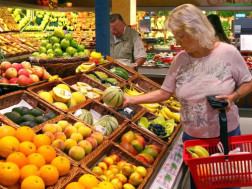Germany and Denmark could follow the UK’s plan to delay giving a second dose of Covid-19 vaccine to people who have already received a first jab, as frustration at the slow progress of European inoculation programmes continues to mount, - The Guardian reports.
Britain said last week it would prioritise administering a first dose of either the Oxford/AstraZeneca or the Pfizer/BioNTech shot so as to ensure more people were protected sooner, with a second dose coming 11 or 12 – rather than three – weeks later.
While the US has said it will not follow in the UK’s footsteps, it emerged on Monday that Germany’s health minister, Jens Spahn, had asked the country’s disease control agency, the Robert Koch Institute, to investigate postponing a second jab.
The move, which follows widespread criticism that Germany has failed to procure enough supplies of the vaccine and been unable to accelerate its nationwide inoculation campaign, was greeted with enthusiasm by doctors.
Leif Erik Sander, head of the vaccine research team at Berlin’s Charité hospital, said: “In view of the current scarcity of vaccines and the very high numbers of infections and hospitalisations in Germany, a strategy in which as many people as possible are vaccinated as early as possible is more effective.”
Denmark is also looking into extending the gap between jabs. The country’s infectious diseases institute said on Monday it would closely monitor the situation in Britain, with the health ministry reportedly considering a 3- to 6-week interval.
With short-term efficacy from the first dose of the Pfizer-BioNTech vaccine, the only one to have won approval from the European Medicines Agency so far, put at about 90%, scientists have suggested a longer gap between doses could be sensible.
The EMA said in a statement on Monday that the maximum interval of 42 days, or six weeks, between doses should respected. It said any deviation from this without a change to its marketing authorisation would be considered “off label use”, which entails lower liabilities on vaccine makers.
In a further bid to accelerate the inoculation process, the German health ministry has also recommended an extra sixth dose be drawn from vials of the BioNTech/Pfizer jab, a practice that has been allowed in several other countries.
While EMA approval for a second shot, from Moderna, expected this week, should ease the situation to some extent, a continent-wide shortage of vaccines has led to a slow rollout across the continent, causing increasing frustration.
The EU’s collective vaccine procurement programme has come in for fierce criticism, with German tabloid Bild criticising Angela Merkel’s “silence over the vaccine debacle” and demanding the chancellor explain why a “clearly out-of-her-depth Cypriot EU commissioner” was tasked with such a vital job.
Markus Söder, the leader of the Christian Social Union, the Bavarian sister party of Merkel’s CDU, said on Sunday the European commission had “probably planned too bureaucratically: too few of the right vaccines have been ordered, and price debates have gone on for too long”.
BioNTech CEO Uğur Şahin has also said Europe’s problems were largely the fault of Brussels: the commission had assumed several different vaccines would be ready at once, so had not ordered enough of the BioNtech/Pfizer shot, he said.
The EU’s health commissioner, Stella Kyriakides, has blamed insufficient production capacity, saying the EU has secured 2bn vaccine doses for its 450 million citizens from six different manufacturers but several have yet to come on stream, while those that have are not yet being manufactured at sufficient volume.
Experts say the shortages should largely be over by early spring and note that the main factor is how many EU citizens will have been vaccinated by late spring or early summer, rather than how many have been immunised in early January.
According to Euronews, Denmark has been the most successful EU member state one week after the EU’s rollout began, with more than 45,800 of the country’s 5.8 million inhabitants receiving a first dose for a vaccination rate of 0.78 per 100 people.
Germany, with a vaccination rate of 0.23 per 100 people, is next, with Croatia, Portugal, Italy and Poland following on rates ranging from 0.19 to 0.13. Austria, Bulgaria and Romania are on 0.07, while the Netherlands will not start vaccinating until 8 January.
France, meanwhile, is under heavy pressure to accelerate its deliberately cautious vaccination drive. A reportedly furious Emmanuel Macron met prime minister Jean Castex and health minister Olivier Véran on Monday after it emerged that only 516 people were immunised in France last week.
“It’s going too slowly,” epidemiologist Arnaud Fontanet said, noting that 240,000 people had been vaccinated in Germany during the same period. Le Monde newspaper asked whether France had donned “the European dunce’s hat”.
The French government has adopted a slow, phased approach, starting in care homes, relying mainly on family doctors to administer the shots and requiring advance consultation and written consent, in the face of Europe’s most vaccine-sceptical population.
A poll published on Sunday found that 58% of French people do not want the Covid-19 vaccine, with women more reluctant than men to be inoculated and only 32% of the 35-49 age group happy to have the jab compared with 58% of over-65s.
Experts have said excessive caution risks scaring as many people as it reassures. The government has speeded up its timetable, vaccinating healthcare workers over the age of 50 from Monday and saying it will open mass vaccination centres before February.
















